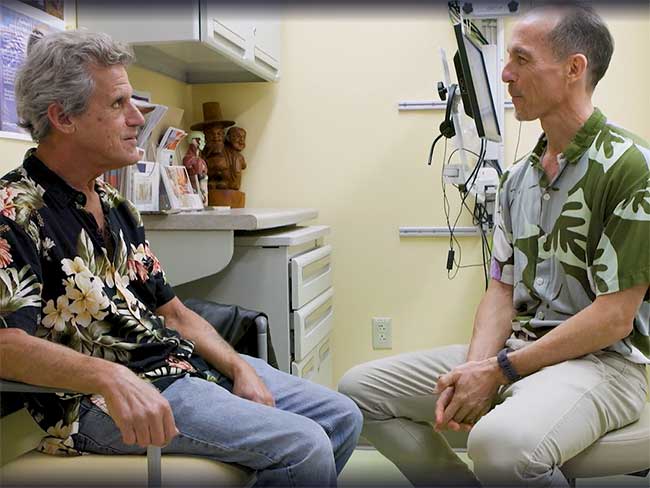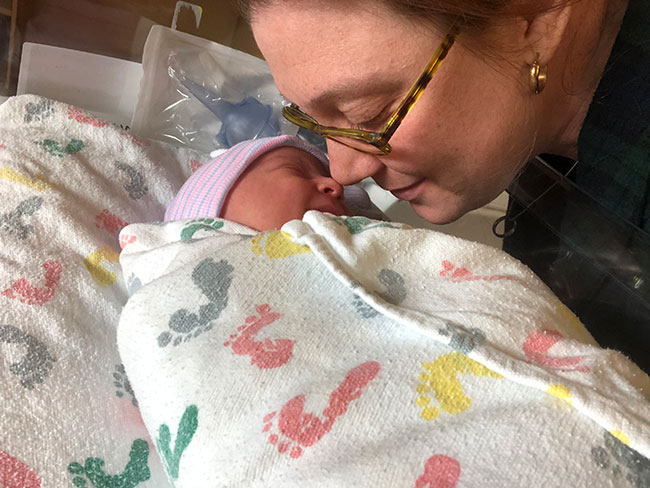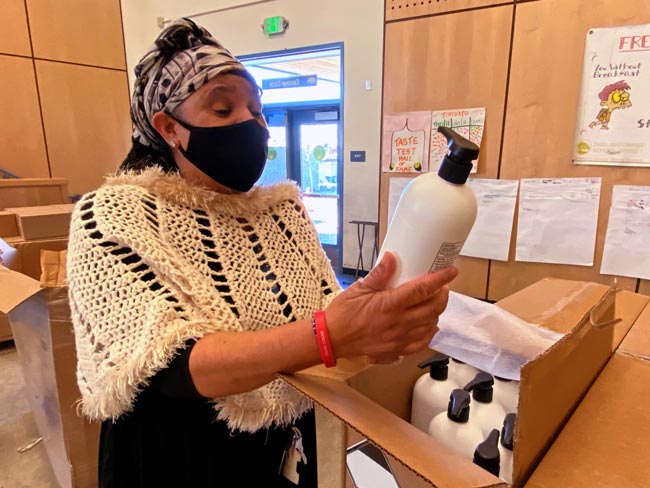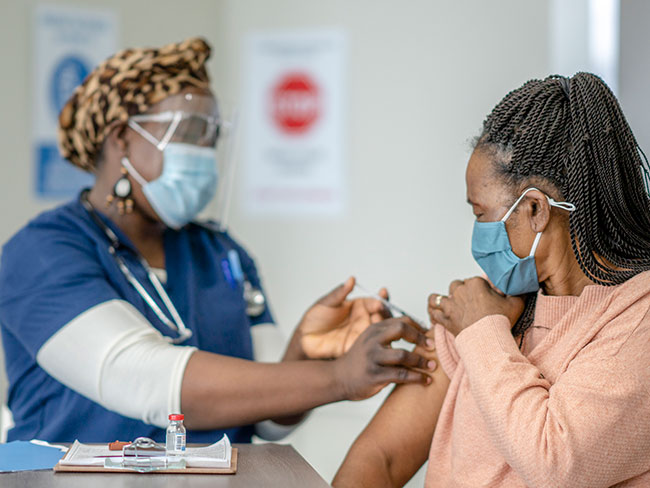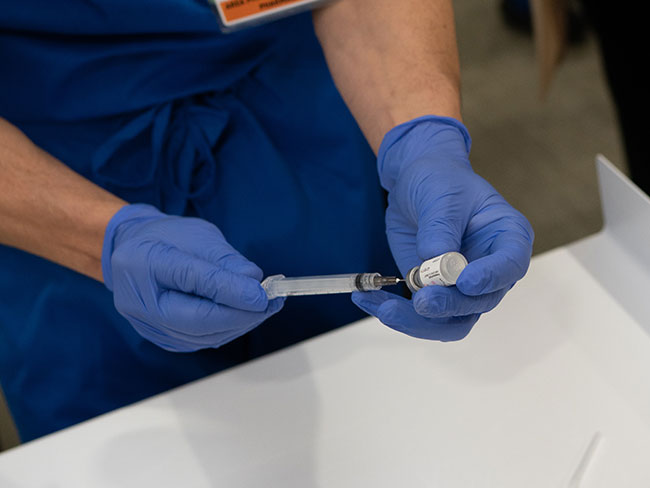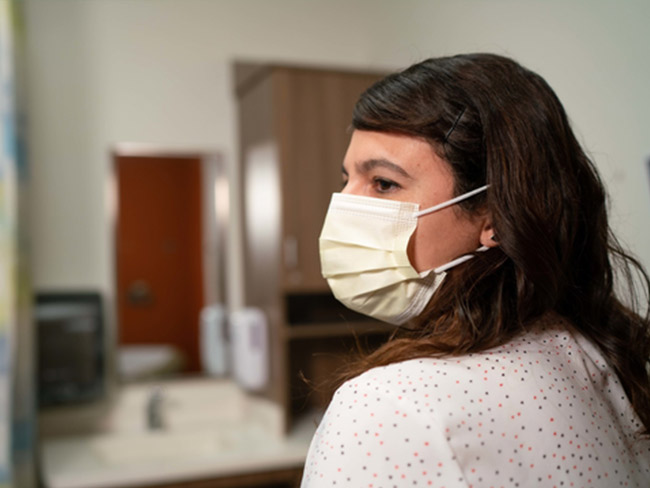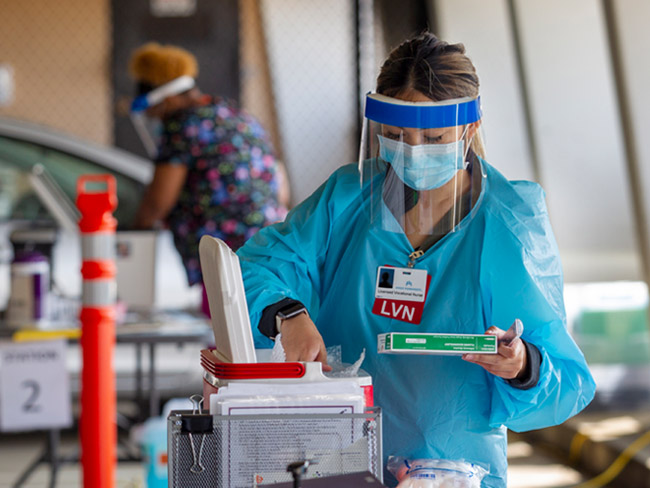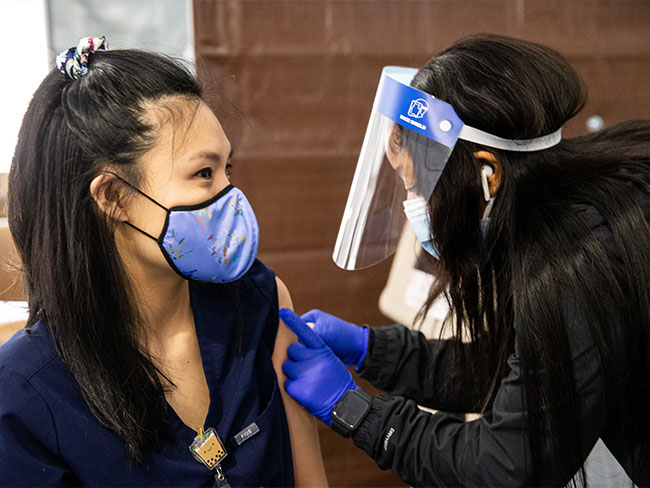Moderna COVID-19 vaccine effective against virus variants
Kaiser Permanente study shows 2-dose Moderna vaccine is highly effective against COVID-19 hospitalization, but protection against delta infection decreases over time.
PRESS RELEASE
Contact: Elizabeth Schainbaum
elizabeth.a.schainbaum@kp.org
510-406-1828
Terry Kanakri
terry.kanakri@kp.org
626-405-2652
PASADENA, Calif. — Kaiser Permanente research published on December 15, 2021 in The British Medical Journal showed 2 doses of Moderna COVID-19 vaccine were highly effective against all SARS-CoV-2 variants; however, vaccine effectiveness against the delta variant moderately declined with increasing time after vaccination.
“We conducted a previous study that showed the high effectiveness of the 2-dose Moderna COVID-19 vaccine, but as the delta variant became predominant in early summer of 2021, questions arose about effectiveness against variants,” said the lead author of the study, Katia Bruxvoort, PhD, an adjunct investigator with the Kaiser Permanente Southern California Department of Research & Evaluation. “This study confirmed effectiveness against all variants during the study period, although we did find a drop in effectiveness over time against delta infection, from 94% effectiveness in the first 2 months after vaccination to 80% effectiveness after 6 months. Protection against hospitalization due to the delta variant remained high at 98% effectiveness.”
At Kaiser Permanente in Southern California, molecular diagnostic testing for SARS-CoV-2 is free for members who request it regardless of whether they have COVID-19 symptoms. Testing also is done prior to hospital admission and many medical procedures. Beginning in March 2021, Kaiser Permanente in Southern California began sending positive SARS-CoV-2 specimens from both symptomatic and asymptomatic people to a contracted laboratory for whole genome sequencing.
This study, funded by Moderna, included 8,153 people who tested positive for SARS-CoV-2, with specimens collected from March 1 to July 27, 2021. Among them, 91.3% were unvaccinated, 1.4% had received 1 dose of Moderna COVID-19 vaccine, and 7.3% had received 2 doses of the Moderna COVID-19 vaccine.
Variants were identified for 5,186 of those samples; 39.4% were delta, 27.7% alpha, 11.4% epsilon, 6.9% gamma, 2.2% iota, 1.4% mu, and 11.1% other variants. At the time of this study, the omicron variant had not yet been detected in the Southern California region.
The researchers compared people who tested positive with those who tested negative. Researchers found:
- The 2-dose Moderna COVID-19 vaccine effectiveness against infection by variant:
- Delta: 86.7%
- Mu: 90.4%
- Alpha: 98.4%
- Other identified variants: 96 to 98%
- People who received the 2-dose Moderna COVID-19 vaccine were strongly protected against COVID-19 hospitalization associated with the delta variant:
- Vaccine effectiveness against delta hospitalization was high at 97.5%
- Vaccine effectiveness against hospitalization for non-delta variants was not estimated because there were no hospitalizations with non-delta variants identified among vaccinated people
- Among people who had received the 2-dose Moderna COVID-19 vaccine, no hospitalized deaths occurred
- Vaccine effectiveness of 2 doses of Moderna COVID-19 vaccine against delta infection was 87.9% among people ages 18 to 64, and 75.2% among people ages 65 and older
“While this study provides reassuring evidence of the effectiveness of 2 doses of Moderna COVID-19 vaccine in preventing COVID-19 infection and hospitalization due to variants including delta, it also has implications for booster shots,” said the study’s senior author, Hung Fu Tseng, PhD, a researcher with the Kaiser Permanente Southern California Department of Research & Evaluation. “The findings of moderately reduced vaccine effectiveness of Moderna COVID-19 vaccine over time against delta infection supports current booster dose recommendations.”
About Kaiser Permanente
Kaiser Permanente is committed to helping shape the future of health care. We are recognized as one of America’s leading health care providers and not-for-profit health plans. Founded in 1945, Kaiser Permanente has a mission to provide high-quality, affordable health care services and to improve the health of our members and the communities we serve. We currently serve approximately 12.5 million members in 8 states and the District of Columbia. Care for members and patients is focused on their total health and guided by their personal Permanente Medical Group physicians, specialists, and team of caregivers. Our expert and caring medical teams are empowered and supported by industry-leading technology advances and tools for health promotion, disease prevention, state-of-the-art care delivery, and world-class chronic disease management. Kaiser Permanente is dedicated to care innovations clinical research, health education, and the support of community health.
